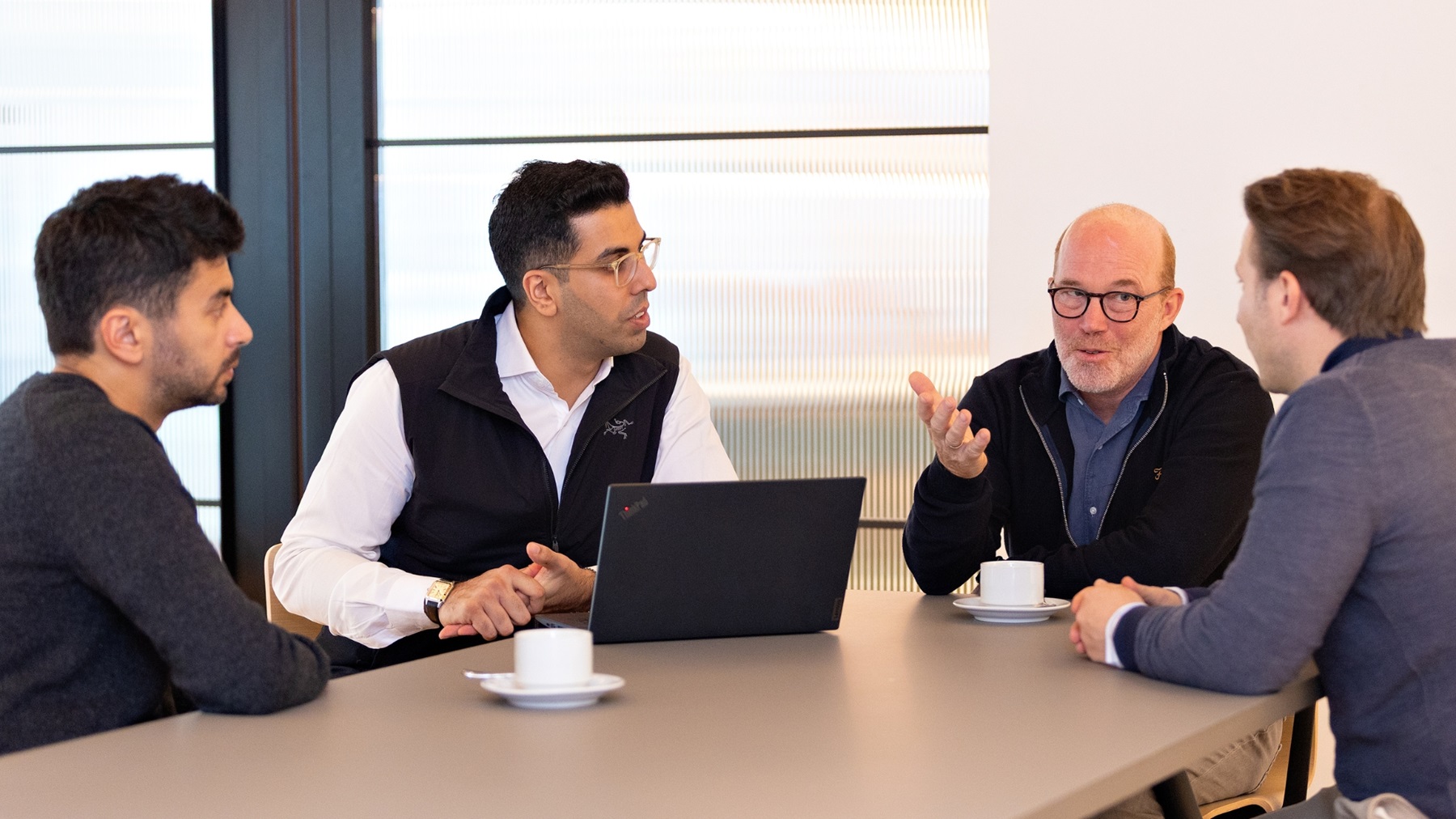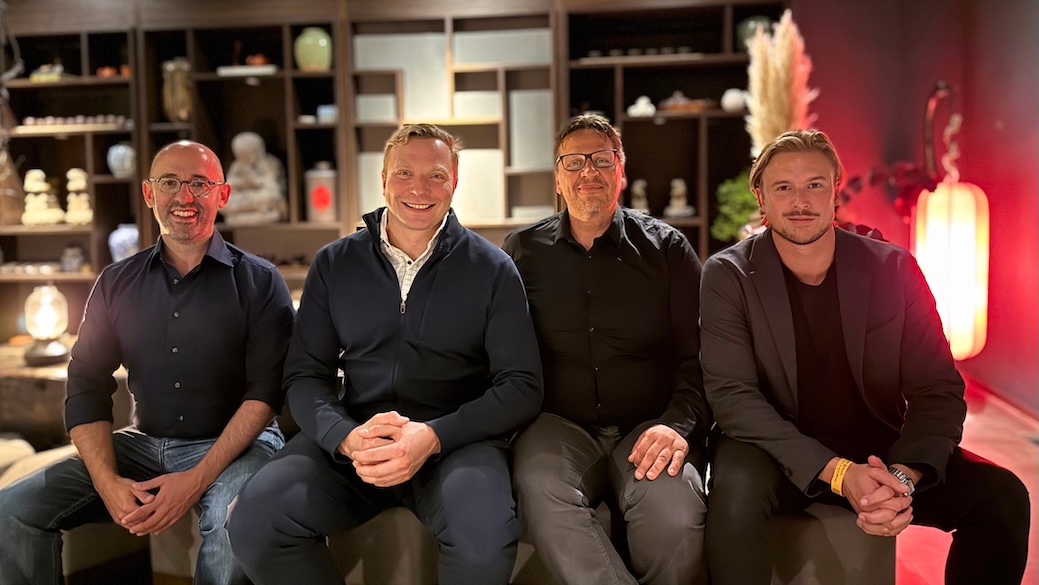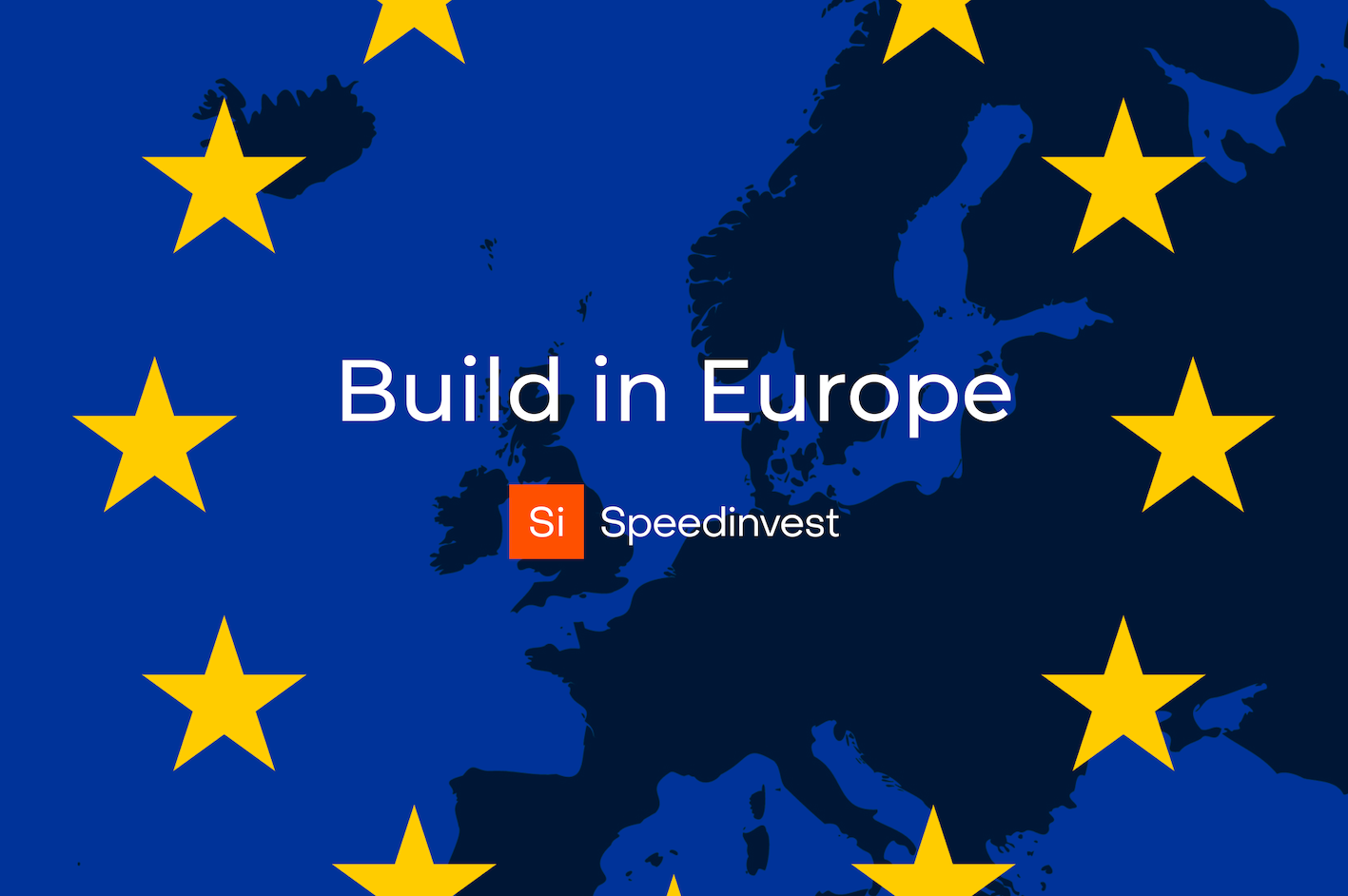Young Sohn joins Speedinvest as Chairman to build global bridges amid “a tornado of change”
The tech world is in a whirlwind, and according to investing veteran Young Sohn, part of that is a "tornado" of unpredictable geopolitics.
Unpredictability on a global scale, Young says, makes it hard to invest, but there is now both opportunity and, crucially, an increased urgency to build world-leading technology in Europe. With strong foundations, European tech can connect to both east and west, despite the fierce winds battering the industry.
To truly thrive in this new environment, both Speedinvest and European tech must look beyond the continent's borders for global opportunities. That is why we're thrilled to announce Young Sohn is joining as Chairman of the firm.
The former Samsung President, veteran investor, and serial entrepreneur will be tasked with building bridges from the European ecosystem to global leaders in the US and Asia, making deep, meaningful connections for our founders, team, and investors.
His arrival not only strengthens our long-standing work across EMEA but also unlocks broader opportunities for European innovation.
The appointment comes as uncertainty over trade, tariffs, and tech represents not just an opportunity, but a necessity for Europe to build its own trusted tech, to "defend the cloud you can trust" and "protect the interests of people,” according to Young.
A four-decade Silicon Valley veteran with a track record that includes over 600 investments and 139 IPOs in global category leaders like Zoom and Graphcore, Young brings decades of experience, strategic clarity, and a global network that will help us guide the next generation of European tech leaders.
“Over the last 15 years, Speedinvest has forged a unique position as a truly pan-European platform for early-stage investment, already on a journey to expand its footprint in the Middle East and Africa,” says Oliver Holle, our CEO and Managing Partner. “Now, with Young joining us as Chairman, we're ready to elevate the firm to the next global level.”
Young will continue in his role as Founding Managing Partner of Walden Catalyst Ventures, where he will seek complementary opportunities to collaborate and source early-stage investments globally.
Building Trust, Not Walls: Seizing the Moment Through Global Collaboration
Young frames the moment through three powerful forces: technology acceleration, trade restrictions and tariffs, and the “tornado” of geopolitics.
These drivers are redefining the post-war order, reshaping markets, and nudging investors toward new alliances, new models, and new regions. “Every country is focusing more on investment, more on defense, more on technology,” he observes.
It’s a moment of both great uncertainty and rare opportunity, especially for Europe. The EU’s own 2025 State of the Digital Decade report highlights the urgency: despite progress, Europe continues to lag in foundational technologies such as AI, semiconductors, and advanced connectivity. Fragmented markets, complex regulation, and a lack of scale continue to slow down innovation.
Yet Sohn sees signs of awakening: “Nations are waking up to this new reality. They want sovereignty over platforms, data, and the cloud. They don’t want data being mirrored or exported to some other country.”
This isn’t about protectionism, he argues. It’s about protecting citizens and securing a digital future that reflects European values.
At the same time, avoiding isolationism in a time of geopolitical divide is essential. Young says more cross-border collaboration is required. "Everything used to revolve around the US. Now, I believe we'll see a much flatter world where countries like Korea, Japan, and Europe will increasingly focus on creating a better flow of technology and trade, not just cultural exchange."
Oliver echoes this point: “Our model as a European seed fund has always been tailored to the needs of fragmented markets. That DNA helps us bridge-build across countries and regions, because no single market is big enough on its own.”
Young will use his vast global network of connections to help Speedinvest build necessary bridges between Europe and markets across the world.
“We see real opportunity in Africa, Asia, and the Middle East,” says Oliver. “In these regions, relationships demand a high level of trust. Our roots in Europe position us perfectly to build those bridges.”
Unleashing "Money Velocity" to Bridge the Later-Stage Funding Gap
Europe doesn’t lack talent. “The scientists are clearly here,” says Young. “Just look at companies like Meta, many of the key AI people, like Yann LeCun, are from Europe.” Data backs this up: according to Atomico, Europe’s tech workforce reached 3.5 million in 2024, matching the US tech talent pool in 2020.
Paris, for example, has rapidly become one of the top global hubs for AI research and development. And yet, as Young notes for Europe, “Starting up is not too bad. But scaling up is very difficult. I believe the reason the US is such a vital, viable economy for startups is that the number of startups is similar to Europe, but the number of scale-ups is much bigger.”
It’s one of European tech’s biggest challenges: the scale-up gap. While early-stage capital has improved, access to later-stage funding remains shallow. Growth at scale requires capital at scale, and that typically comes from institutional sources.
US pension funds commit over 11 times more to venture capital than European ones, despite only managing 2.7 times more capital. Axon Partners Group recently revealed that US startups attract 6–8 times more venture capital annually than their EU counterparts, with the disparity becoming even more pronounced in large-scale VC funds over the $500 million to $1 billion range, which are 12–14 times more prevalent in the US.
So while early-stage capital access has improved, later-stage funding remains a bottleneck, hindering European companies from competing on a global stage.
A key reason: Europe still lacks a strong, integrated capital market with deep liquidity and globally relevant players, along with a robust M&A culture among corporations that consistently acts as an exit channel for scale-ups.
Young calls this dynamic “money velocity”: when the structure is in place, successful exits allow for reinvestment quickly. In Silicon Valley, it’s second nature.
“They already have that in their DNA,” he says. “Universities, investors, and founders are deeply intertwined. When something works, the money flows right back into the ecosystem.”
Unlocking the Flywheel: Philosophical Shift for a Thriving Tech Future
Europe, by comparison, is “two decades behind” in building a self-sustaining innovation flywheel. A major part of that gap, Sohn argues, is philosophical.
He points to Singapore — a small country with big ambitions as an example. “Austria and Singapore have similar GDPs. Austria has more people. But Singapore is a major global investment hub,” he said.
The difference? Policy and mindset.
“The national policy and philosophy are different. It's a small island, so they have put their money into creating a global investment ecosystem, with the caveat that Singapore benefits. They generate returns, which then help fund pensions and other social schemes. There's a lot of money out around the world, but it's a question of how you deploy it.”
Singapore’s sovereign wealth funds — GIC and Temasek — are among the most active, globally oriented investors in the world. They treat venture capital as a strategic priority, not a speculative luxury. “They use their capital to generate returns and secure their future,” Sohn explains. “That’s what’s missing in much of Europe.”
Europe invests 3x less per capita in late-stage VC than the US, and just 0.2% of pension assets flow into venture. Even beyond that, many European institutional investors put their money into US-domiciled funds, hindering the much-needed innovation flywheel for European VC.
Oliver believes Speedinvest, by collaborating with Young, can act as a catalyst, helping European capital flow more strategically into high-growth ventures and bridge the scale-up gap.
“Young is keen to support the European tech ecosystem by spending significantly more time on the continent, so we hope to use this opportunity to build closer ties between him and our LPs and partners across the globe on a direct basis.”
Proven Path to World-Leading Deep Tech
Despite its challenges, Europe has already created world-leading tech companies, notably in deep tech. Sohn points to ARM and ASML as standout examples.
“ARM, from Cambridge, powers almost every phone on the planet,” he notes. “ASML, based in the Netherlands, holds a near-monopoly on EUV lithography. Without them, we can’t make modern chips.”
These companies didn’t emerge by accident. They were nurtured by long-term vision, strategic partnerships, and patient capital, Young says. In ASML’s case, the company spent years building a global supply chain, acquiring US companies like Cymer and working with German firms like Carl Zeiss. It now boasts a market cap of over €250 billion.
“The lesson is clear,” Young says. “You need critical mass. You need ecosystems. And you need patience, my own portfolio companies average 8.7 years to exit.” Patience, he adds, with a necessary sense of urgency. "You have to make decisions quickly. You have to be on top of the game. You have to help companies go faster."
Such in-depth knowledge of successfully scaling Deep Tech companies is invaluable for Europe, where scaling hardware startups continues to prove challenging.
“There are very few accomplished later-stage investors in Deep Tech in Europe that have a similar track record or global stature as Young Sohn. Our team and portfolio companies will benefit dramatically from his experience, network, and global access across a variety of our investment themes,” Oliver says.
Building in Europe, Scaling Globally
Young Sohn's decision to join Speedinvest wasn't sudden; he's known our team for nearly a decade, even investing during his time at Samsung, and has long admired our coverage model and hands-on approach.
Now, as Chairman of our Board, he's ready to help us leap into a new global Speedinvest, which Young describes as "More global. More scaling. More impact."
According to Young, VCs play a crucial role in Europe's growth: "They are not only responsible for returns, but for driving the pace of innovation. They have to set the tone. They have to set the examples." Oliver emphatically agrees: "We must realize once and for all that there is no Plan B to doubling down on innovation and tech. The sooner we all grasp this fact and act, the better."
Speedinvest's vision for its global board, chaired by Young and soon including similar global-calibre advisors from Southeast Asia to the US, aims to connect Europe's brightest to the world's opportunities.
"Young has already demonstrated an outsized impact for some of our portfolio companies," Oliver said. “Opening doors in both the US and Asia that were previously inaccessible, both towards global investors and corporate C-levels."
Rooted in collaboration with founders, fellow investors, policymakers, and global partners, working with Young directly serves our ultimate goal: empowering European startups to not just launch, but to scale, lead, and endure on the world stage.
At Speedinvest, we believe the next generation of global leaders can come from Europe, and with the right guidance, capital, and ambition, they will.
With Young Sohn as our Chairman — and fifteen years of building our own blueprint on how to support hundreds of early-stage startup founders across multiple geographies — we're more ready than ever to make that happen.














.svg)
